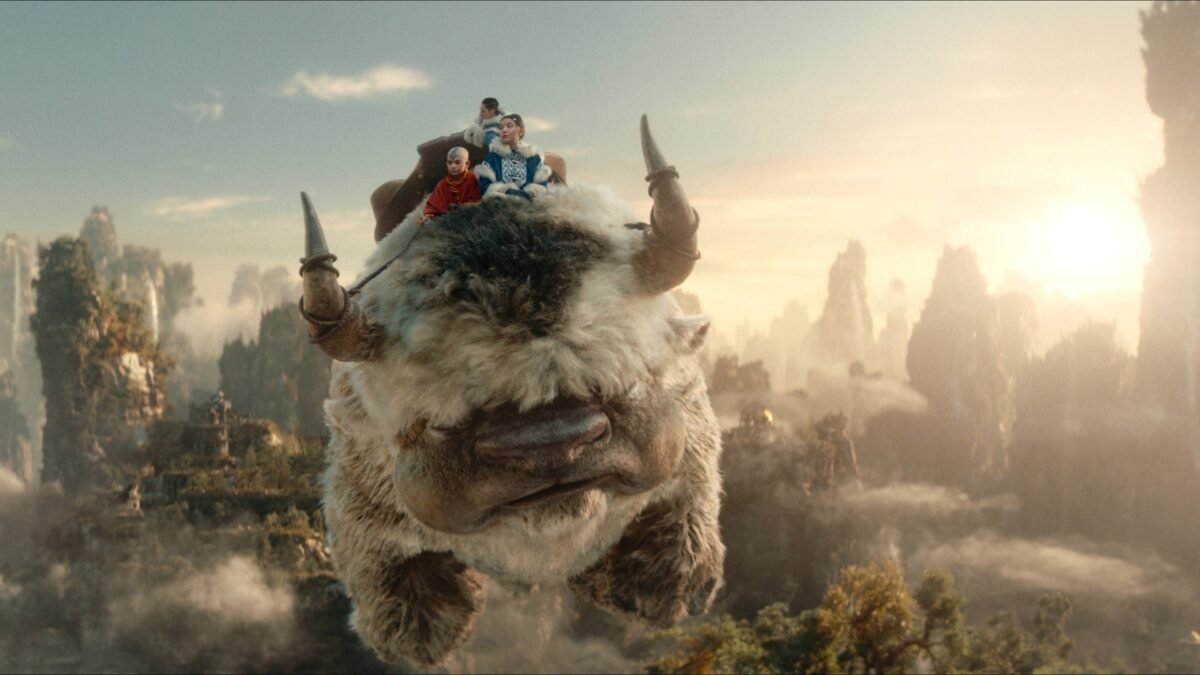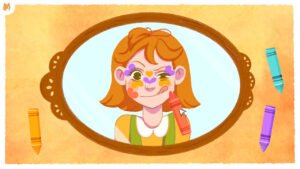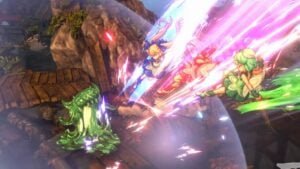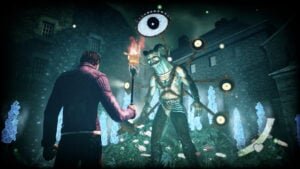CGMagazine had the opportunity to speak about the score of the Avatar: The Last Airbender Netflix series with composer Takeshi Furukawa.
Part of the allure of great films or TV shows lies with great acting and cinematography. Another aspect that draws audiences in is an original, fluid soundtrack and score. Behind every great film or series, there is a John Williams, a Hans Zimmer, a Michael Giacchino, a Howard Shore or a Danny Elfman. The list of composers and musicians is endless. The latest Netflix live-action adaptation series, Avatar: The Last Airbender, had the BAFTA-nominated Japanese American composer Takeshi Furukawa.
Furukawa has been known for bringing large-scale orchestral works with modern cinematic feels. His other credits include Mythic Quest (Apple TV+), Star Wars: Clone Wars (Lucasfilm), The Last Guardian (Sony Interactive Entertainment), Planet of Lana (Wishfully), and Honor of Kings (Tencent). He has received the Italian Video Game Award for Best Music, IGN Award for Music of the Year, and the GANG Award for Best Instrumental Composition, as well as nominations at the BAFTA Games Awards, D.I.C.E. Awards, SXSW Gaming Awards, and the International Film Music Critics Association Awards among others.
He has also worked with some of the most renowned ensembles, including the London Symphony Orchestra, Royal Philharmonic Orchestra, BBC Symphony Orchestra, Danish National Symphony Orchestra, Swedish Radio Symphony Orchestra, WDR Symphony Orchestra, Seattle Symphony, and the American Youth Symphony, to name few. With a stacked resume in both the video game and TV industries, it is no wonder he was chosen to take on the mantle of heading the music for Netflix’s Avatar: The Last Airbender live-action series.
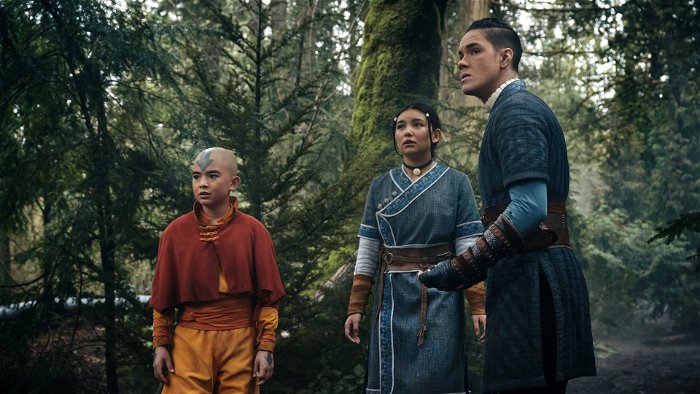
After being able to watch the whole first season, I really enjoyed the music experience. It was very epic, to say the least. How you were brought on to the project of Avatar: The Last Airbender?
Takeshi Furukawa: It was an audition process. I believe Albert [Kim] and his team put out a call, not too wide, to a select number of agencies and agent contacts. I was from my agency. I think it was probably me and maybe a couple of other people who had the privilege to submit a reel. And something must have struck a chord with them about my music. So I got the gig. So, it was just a straightforward audition process.
Have you seen the original animated series? Did you use inspiration from that?
Takeshi Furukawa: Absolutely. I’ve seen the original, not in real-time. It was a little after college for me. So I think I was kind of out of the age range, the target age range when the original aired in real time, but I saw it a few years after. And then, when I actually got this gig, I rewatched it again. And I watched it once and then did not watch it for the remainder of the production process because I didn’t want to be influenced by it too much, if that makes sense.
Makes a lot of sense. And jumping off of that, what were your concepts for the overall show, building themes around each character and locations that the characters visit?
Takeshi Furukawa: Sure. So there are two aspects I think that define the score for Airbender or our incarnation of Airbender here. One is the Pan-Asian influence, which obviously is seen visually and then in the world-building of the story—that is also brought into the music as well. We draw a lot of Asian traditional influences, instruments, techniques, colours and flavours across Asia. And I think that’s one of the defining flavours for this franchise.
The other is the orchestra—the traditional use of orchestra. If I may be so bold to say, a lot of Hollywood scores use the orchestra. But me as a composer, naturally and also for this show as well, we tend to lean a little bit more old school where we use the orchestra more like a symphonic. I’m not sure if that’s technically the right use of the term in this context. But we use the orchestra in a very traditional sense, as opposed to combining orchestras with stents and more modern production techniques for the orchestra.
So I think those two are kind of the defining characteristics of our show, or the sound of our show compositionally. We are going that more traditional, old-school route with the orchestra and the writing. There’s a lot of melodies, motifs—we call them like motifs, in musical contexts where each character, each locale, and each emotion has a theme. And we’re able to thread these small musical melodies and fragments throughout the show.
We actually roadmap and blueprint the score that way as well, where we might seed, say, Zuko’s theme early on, and it would culminate to a climax at a certain part. It would culminate to a climax at a certain point in this season. And that’s the way we kind of went about scoring the first season of Airbender.
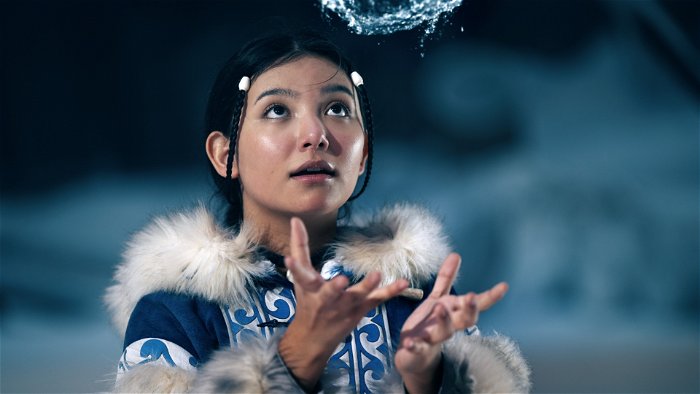
That’s amazing to hear. And I definitely felt that by the final episode and the final scenes in the last episode of the season. Even going off of that, what was your favourite scene to compose from the whole series?
Takeshi Furukawa: Oh, that’s such an unfair question because that’s like asking you to pick a favourite child. Oh my gosh. I can’t pick. Can I just rattle off a couple?
Sure!
Takeshi Furukawa: I love Katara, just Katara’s theme in general. I really think that as much as Aang is the main key role for our story. I really think the two major narrative threads for season one are Katara’s arc and also Zuko’s arc, I just love those two characters.
So, both of their themes are my favourites. I love the sound of Omashu, the traditional influence from a specific part of Asia that we were able to bring in to create the sound of Omashu. I just love that. I also love the Northern Water Tribe, that entire arc in the last two episodes. Yeah, you’re really asking me to pick a favourite child.
I know, sorry. For me, I have always liked the sort of hopeful and more emotional moments. We got that a lot between Zuko and Uncle Iroh. I think those ones stood out to me the most.
Takeshi Furukawa: Oh, I’m so glad you say that because personally, I love scoring those sentimental, emotional moments. More so than the action moments, obviously those moments are awesome. It always gets my heart racing. And you know, it’s fine. But it’s really the quiet moments that kind of do it for me.
Yeah, it’s those emotional moments that I tune in more. And, of course, Zuko and Uncle Iroh’s scenes probably had the more emotional, heaty scenes.
Takeshi Furukawa: Yeah, yeah. It’s always the quiet moments, I think, that really draw you in.
And circling back to diversity and the representation of Pan-Asian instruments, I was curious how you re-did or re-created the original outro theme into this version of Avatar: The Last Airbender?
Takeshi Furukawa: Yeah. So, very early on, we knew we were going to be able to use certain key themes from the original series. And when we were presented with the opportunity and option to retain those themes, everyone just unanimously said, ‘Absolutely, we’ve got to keep them because it’s so iconic. It’s the signature sound of the show.’
So things like the main Avatar theme and the end credits, we were able to bring back. I was able to put my own touch on it by revamping it, making it fit with our version of the show. And it was a lot of fun. In fact, I got to connect with Jeremy [Zuckerman]—he’s such an awesome dude.
When we were doing the end credits, that vocal thing was so distinct. When I first heard it, I was like, ‘What is he doing? I have no idea how to even reverse engineer this’. So the Netflix executives really kindly connected us, and I was able to pick Jeremy’s brain. It was a lot of fun. He’s great. He’s a musical genius. And he explained to me what was going on. So I was able to get guidance from him to recreate that sound, and put my humble touches on it to try to bring it into the world of our show.
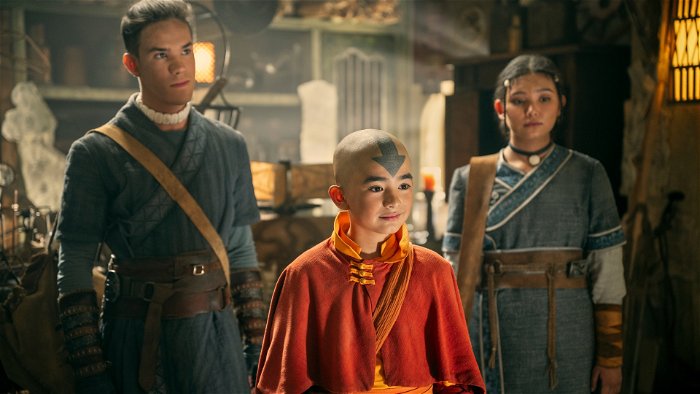
It’s really awesome that you got to connect with Jeremy. I know I was excited and hyped to wait for the first episode of Avatar: The Last Airbender to finish. I thought, ‘Are they going to do the iconic end credits?’
Takeshi Furukawa: We definitely knew what we were doing. I think our mantra when we were doing this was, “What would the fans love?” We just needed to make sure we hit the most important parts because, again, it’s the soul of the show. So thank you for noticing and thank you for expecting that. I’m happy.
Oh yeah, for sure! And lastly, what do you hope audiences enjoy from this series?
Takeshi Furukawa: I just hope that they feel the love that all of us put into it because we are all the creators and are major fans of it. We made a series…or I think at least I could speak on the music team’s behalf. We endeavoured to create a series which we would love watching as a fan ourselves. No corners were cut; everyone just like gave their 10 out of 10; the VFX are awesome.
Hopefully, you guys will feel the love and effort that was put into the music as well. But I just hope that fans will enjoy it and have a good time because it’s meant to be a spectacle. It’s meant to be entertainment which is supposed to be enjoyed and fun times to be had with the entire family.
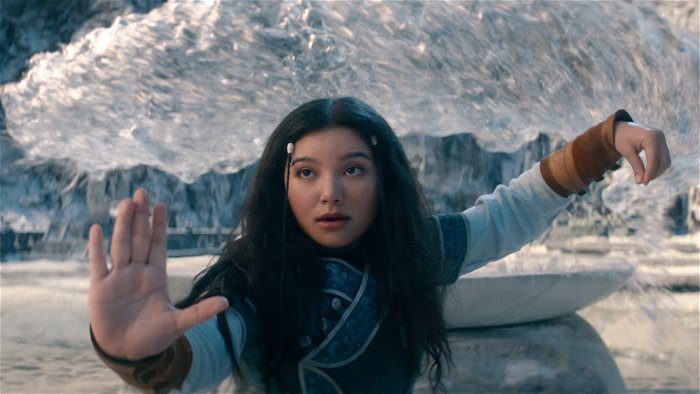
Thank you again so much, Takeshi.
Takeshi Furukawa: Thank you. Thanks for having me. It’s great talking to you.
